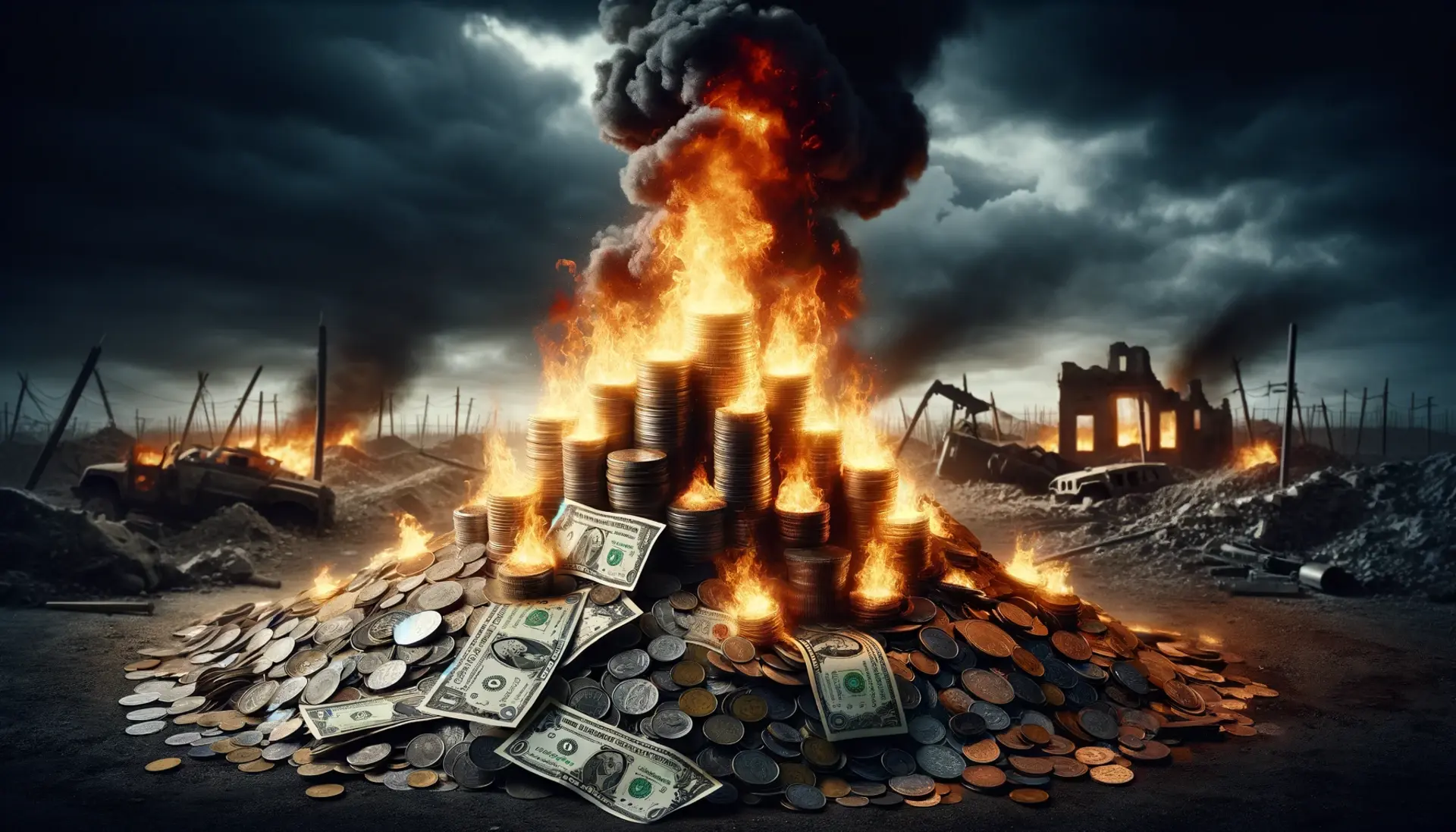In an era where wars are often fought in the shadows of geopolitical agendas, the Ukraine conflict has taken center stage, exposing fissures in the very fabric of international relationships. It's not just the battleground that's left scarred but also the coffers of the American taxpayer, who, some allege, have been systematically defrauded as billions are funneled into the seemingly unwinnable Ukraine conflict. As revelations of possible avoided wars and backroom negotiations surface, one must ask – at what price does peace come, and who truly bears the cost?
TL;DR Summary:
The article scrutinizes the significant expenditure of American tax dollars on the ongoing Ukraine conflict, questioning the necessity and outcomes of the war in light of an alleged, but unexploited, peace deal. It casts a critical eye on potential profiteering by the military-industrial complex and analyzes the role of media in shaping public perception, calling for increased transparency and a reevaluation of foreign policy priorities. With a focus on pressing domestic needs, the complexities of this international involvement are explored, urging a redirection towards diplomacy and more equitable resource allocation.
Scrutinizing the True Costs of the Ukraine Conflict
With whispers of an abandoned peace deal echoing through the corridors of power, a narrative unfolds that paints a picture of deception at the expense of both American finances and values. Could the clash echoing across Ukraine's plains and fields have been preempted by signatures on a forgotten document? This piece seeks to uncover layers of purported deceit, where the American taxpayer's burden, government transparency in conflict, and the military-industrial complex's interests intertwine in a dance as old as time itself – the profiteering from war at the people's expense.
Background of the Conflict
Navigating the Roots of Eastern Tension: The Origins and Significance of the Ukraine Conflict
The conflict in Ukraine, with its historical underpinnings and geopolitical implications, has been a tale of east-west tensions coming to a head. It began with aspirations of democratic freedom and integration into Western structures like NATO, conflicting with the spectres of a Russian sphere of influence longing to maintain its foothold. The essence of the struggle lies in Ukraine's constitutional commitment to joining NATO – a move that inadvertently became the friction point with Russia's geopolitical sensitivities, sparking a series of events that would lead to an international crisis.
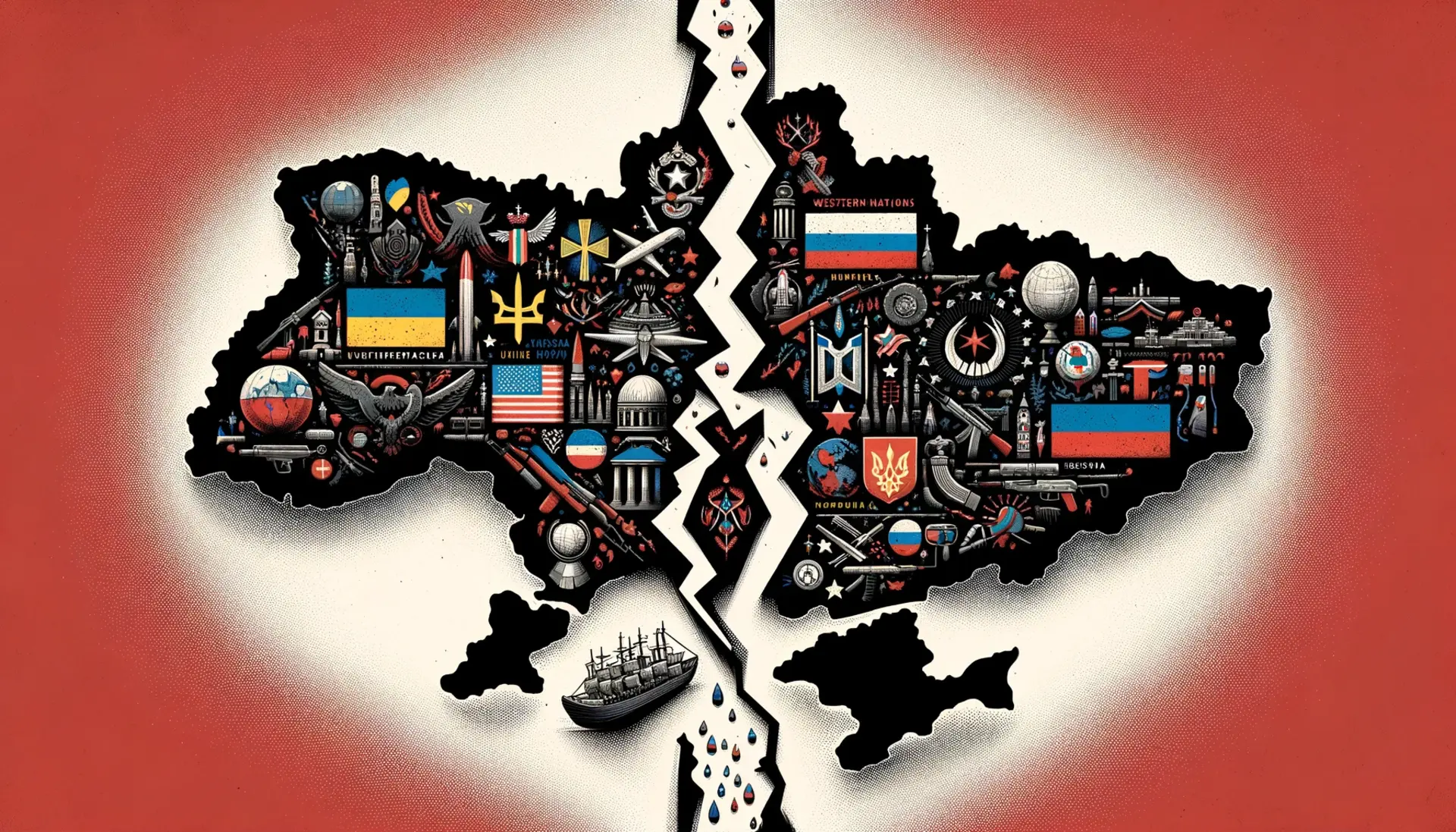
The saga unfurled into more than just a regional power tussle; it evolved into a full-blown international concern. The significance of Ukraine's NATO membership controversy extends beyond its borders, touching upon the delicate balance of power, the NATO expansion debate, and the unyielding ideologies that define modern-day political theatre. As this chess game over territorial integrity and alliances played on, a ripple effect was felt worldwide, drawing attention, resources, and battle lines that would come to affect nations far removed from the immediate conflict.
The Alleged Peace Deal
On the Table: The Controversial Peace Deal That Could Have Altered History
Amidst the cacophony of war, a single pivotal moment has emerged from the shadows: the revelation of a peace deal, reportedly left unsigned, which proposed a simple if contentious solution – that Ukraine remain neutral and distance itself from NATO in exchange for peace. There was hope, however fleeting, that such an agreement could serve as a bulwark against bloodshed, yet decisions made by figures beyond Ukraine's borders, specifically involving Western leaders like Boris Johnson, pointed to a different, darker path.
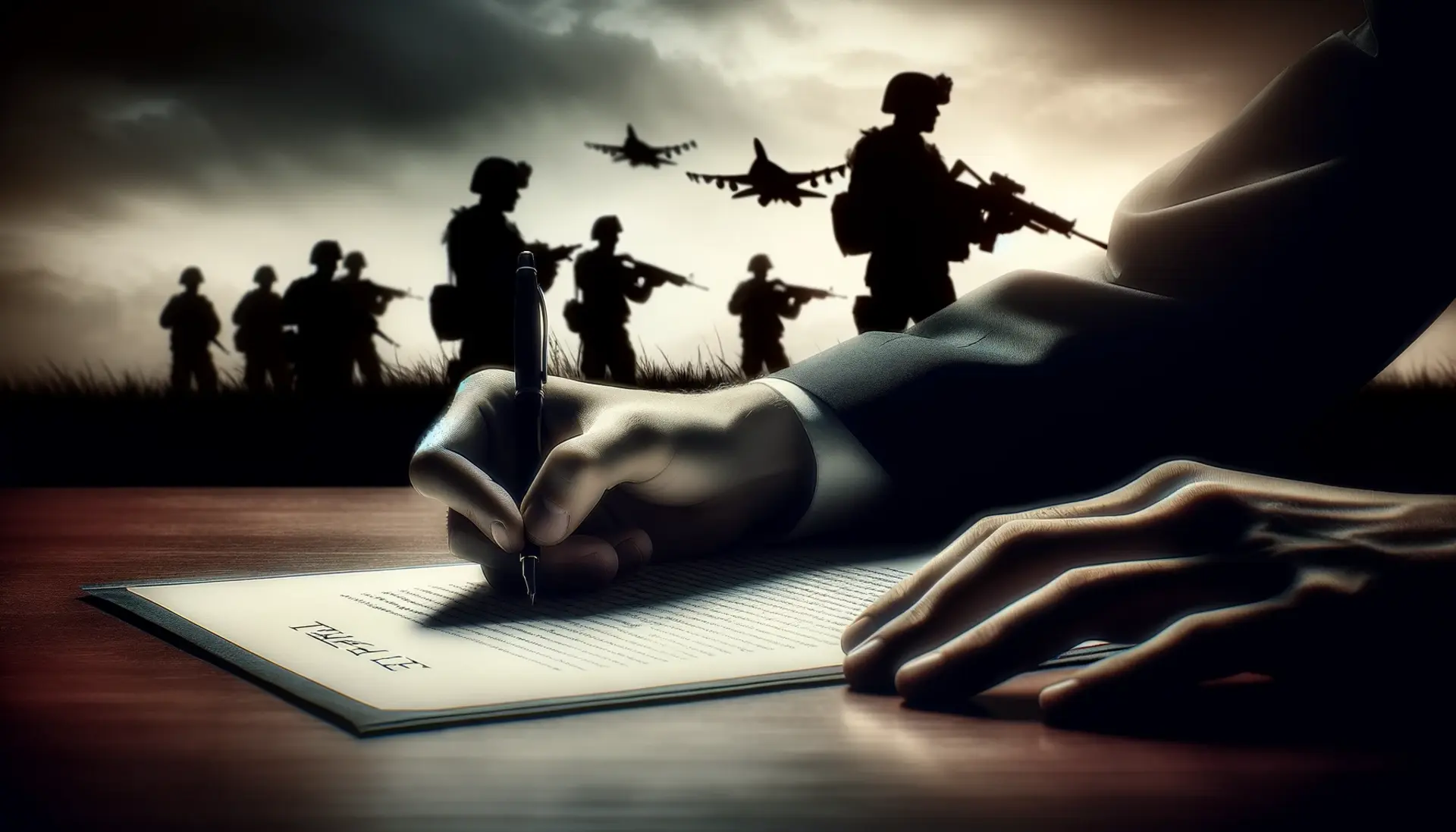
The skepticism and outcry that have arisen mirror the fears of those who see war as a chessboard for the powerful, with ordinary lives as the pawns. Claims that the peace talk disruptions were engineered by political actors with vested interests in conflict prolongation suggest a world stage manipulated by a few at the cost of many. The admission from within Zelensky's inner circle that a peace deal was indeed an option has further fueled the narrative of deceit and manipulation – a cohesive strategy unwoven to the detriment of the common peace seeker and taxpayer.
American Taxpayer Burden
The financial commitment made by the U.S. government to the Ukraine conflict has become a central point of contention for those keeping a vigilant watch over the expenditure of American tax dollars. As sums burgeon into the billions, taxpayers rightly question the accountability and wisdom of such vast allocations. The heavy-laden burden bears down on a citizenry increasingly concerned about the opportunity cost of these wartime choices - particularly when issues like domestic infrastructure, healthcare, and emergency disaster response claim their own dire need for funding.
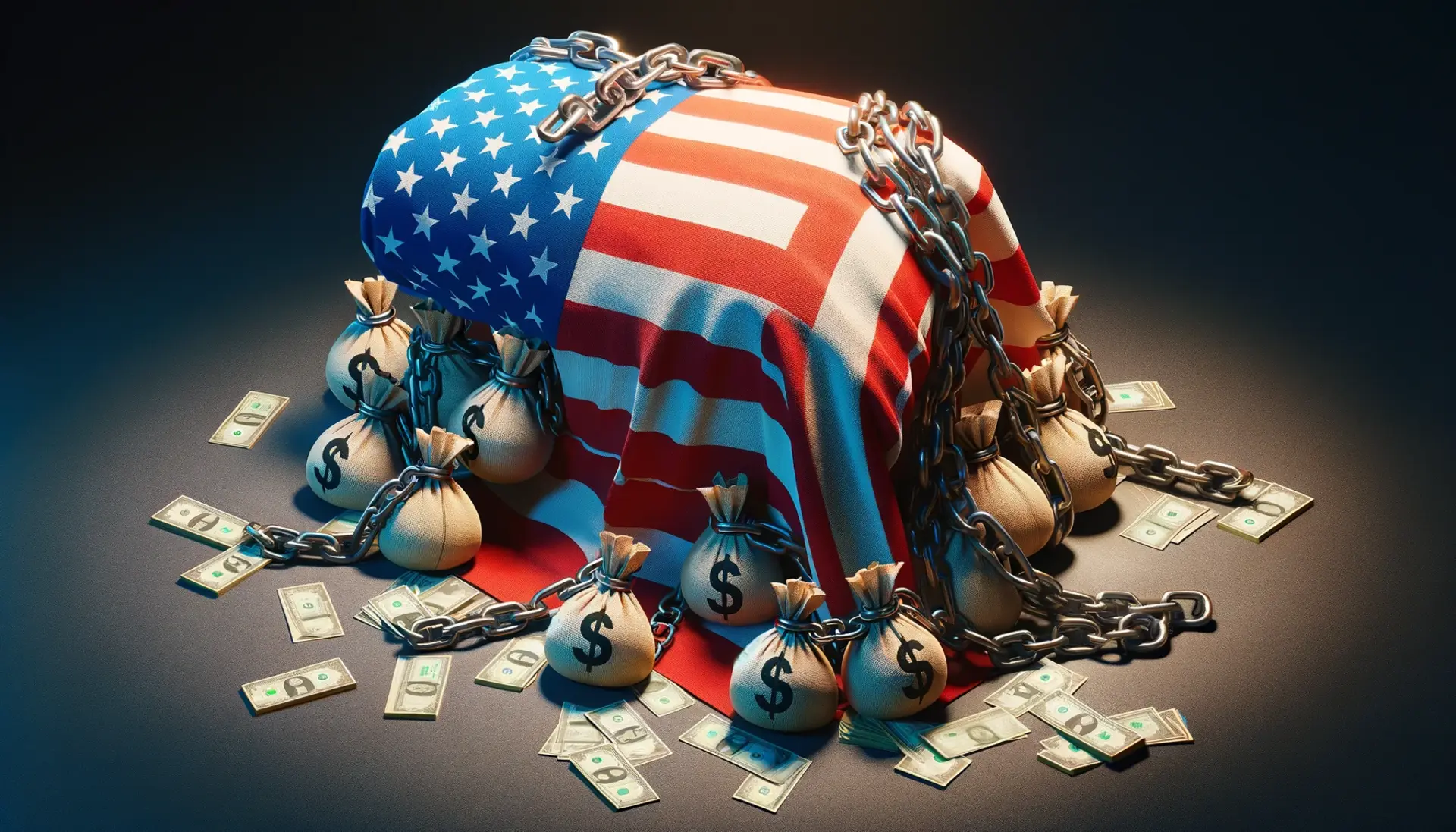
The emotional toll supplements the palpable economic pressure as stories of human suffering and loss saturate the news. The moral ledger of American society finds itself at odds, calculating the intangible costs of international involvement against the ethos of compassion and aid. The conflict's complexity only magnifies the dilemma, where each dollar spent may inadvertently propagate the very sorrows it aims to alleviate.
Military-Industrial Complex Interests
A disconcerting dance unfolds in the shadows of the conflict, a waltz of war profits intertwined with national defense intentions. Defense contractors like Raytheon and Lockheed Martin sit at the epicenter of this quagmire, their ledgers blooming with the funds siphoned from the pockets of American society. As the gears of the military-industrial complex churn, accusations of profiteering thrust these corporations into a harsh and questioning spotlight.
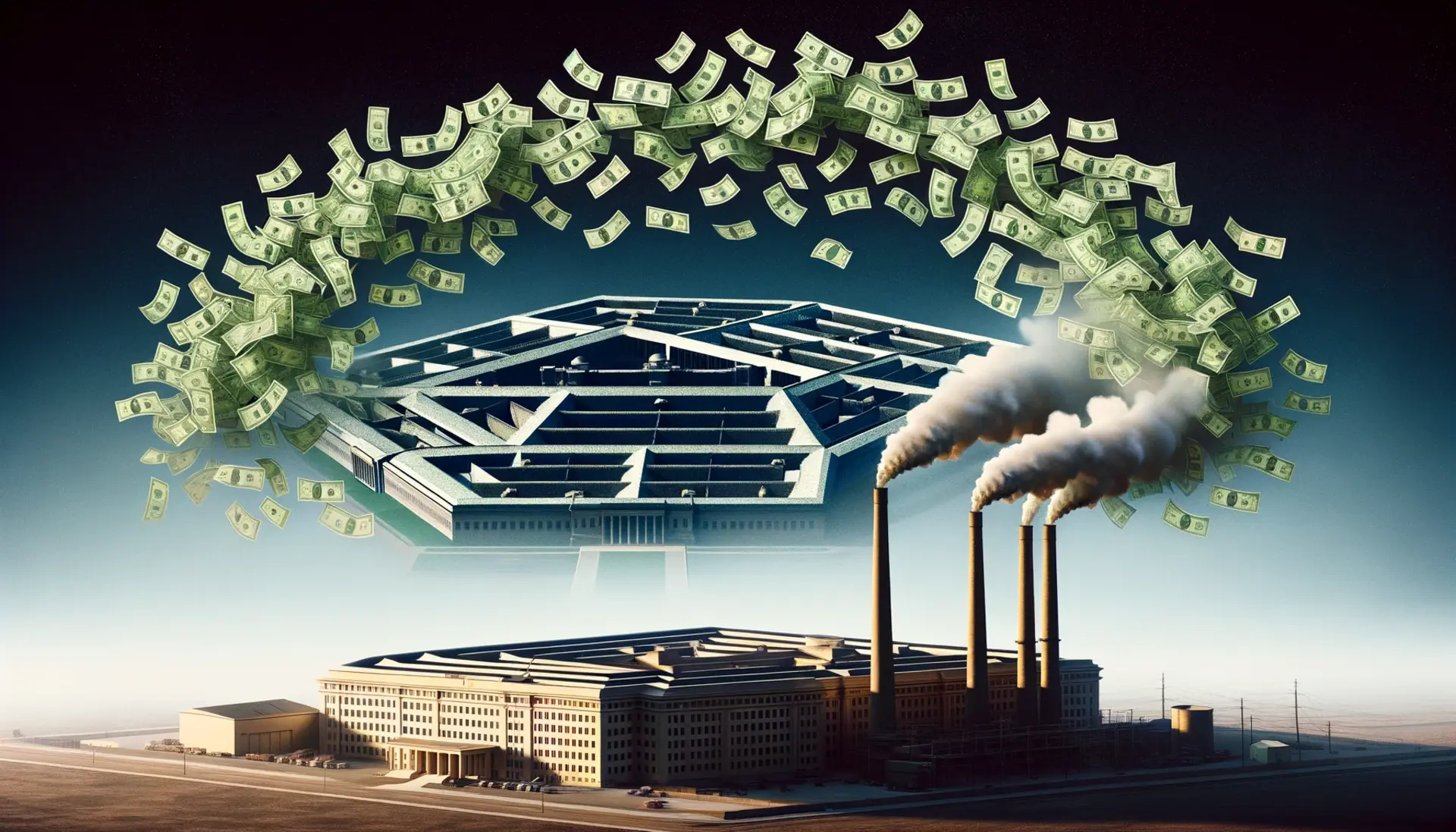
The revolving door between defense establishments and positions of government policy influence is laid bare for public scrutiny. The possibility of past executives dictating the course of current conflicts raises conflict of interest alarms that resound in the ears of an already skeptical populace. Critical eyes dissect ties that bind lawmakers to the weapons trade, pondering the depths of honest diplomacy in the choices that edge a nation ever closer to the brink of perpetual war.
Media Manipulation and Transparency Issues
The battleground is not solely confined to the physical realm; it is also waged within the narratives crafted by media entities tasked with shaping public perception. The Ukraine conflict has become both a story to be told and a lesson in the responsibilities and pitfalls of journalism. Reports delayed or narratives skewed contribute to an erosion of trust in institutions traditionally regarded as the beacons of truth.
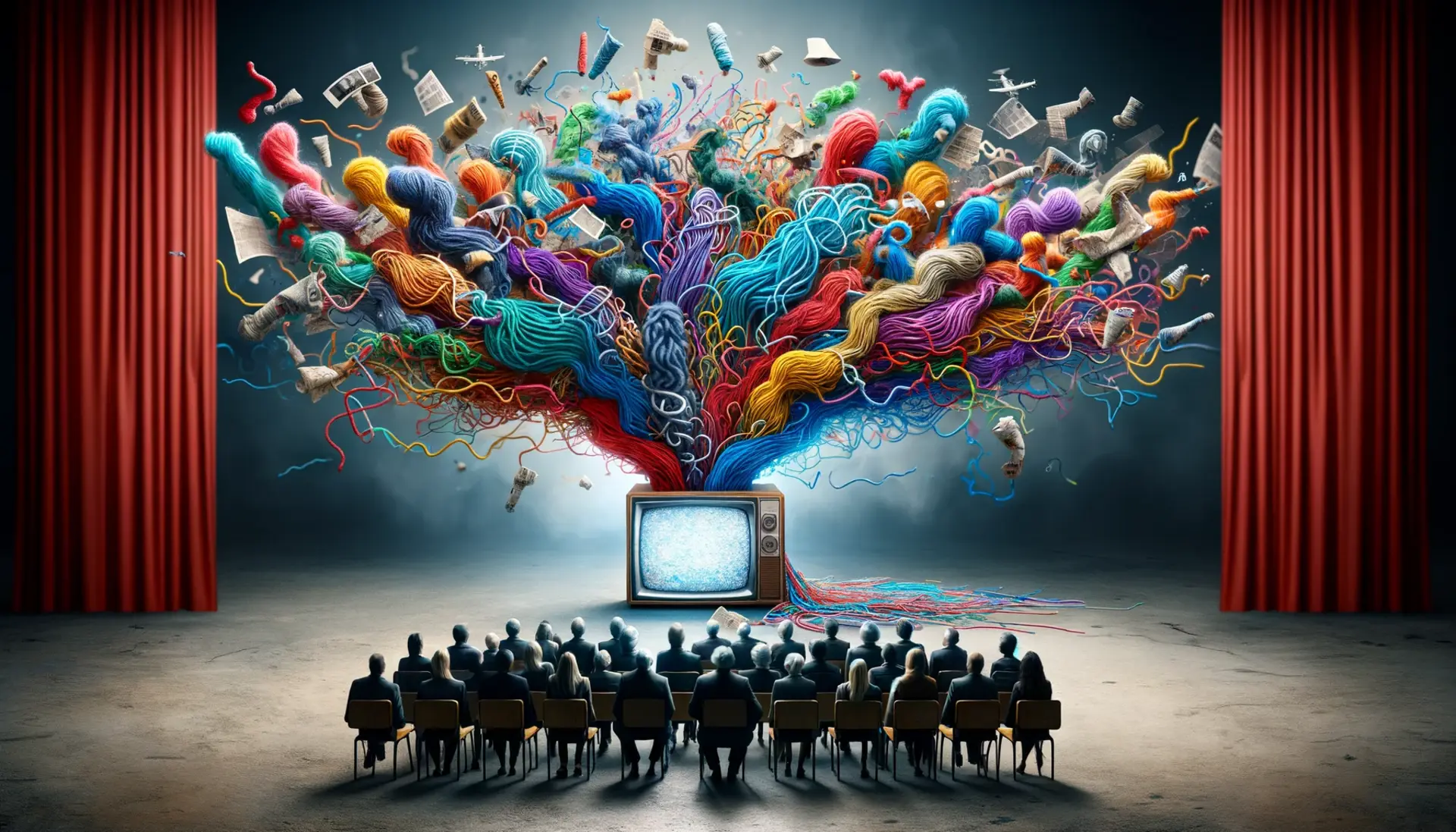
In a world where misreporting can sway opinion and policy, the media's role as an arbiter of facts becomes increasingly paramount. The change in tone observed across mainstream platforms reveals the potent influence of information on the tide of conflict. The emergence of investigative journalism that challenges the status quo is crucial in maintaining the integrity of public discourse, pushing back against the potential manipulation of facts to serve undisclosed ends.
The Path Forward
In the final analysis, the complexities and controversies surrounding the Ukraine conflict, as they reflect on the American public, culminate in a crossroad of choice and introspection. The suspected defrauding of the American taxpayer, juxtaposed against the stark reality of war's human cost, invites deeper consideration of the path laid out before a nation and its people.

The mandate for transparency and the persistent pursuit of peace take on renewed urgency as voices from all sides call into question the past steps and future direction of a conflicted world. As we stand at the nexus of potentiality, the lessons gleaned from this chapter in history must guide our decisions - reflecting a commitment not only to the prudent stewardship of resources but also to the loftier aspirations of global harmony and humanitarian principles. Only through such conscientious action can the true spirit of a nation be reflected in its dealings, both at home and on the world stage.
